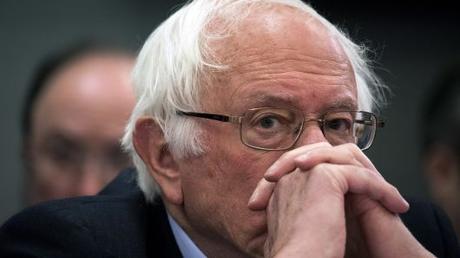 (Photo of Bernie Sanders, from cnbc.com, is by Aaron P. Bernstein / Getty Images.)
(Photo of Bernie Sanders, from cnbc.com, is by Aaron P. Bernstein / Getty Images.)Bernie Sanders finished about 3,000,000 votes behind Hillary Clinton in the 2016 race for the Democratic presidential nomination, but he showed surprising strength for someone who swears he's not a Democrat (and doesn't want to be one). But if he runs in 2020 (and it is looking like he may do that), he may find it tougher going. That's because of changes in the Democratic Party nominating process.
In 2016, Sanders did best in states that had caucuses instead of primaries. He may not have had as many supporters as Clinton, but his supporters were passionate and sure to show up at a caucus. That gave him an advantage in those caucus states -- an advantage that he did not have in primary states (where Democrats just needed to take a few minutes to vote instead of taking hours to attend a caucus).
But the Democratic Party, in order to get as many people as possible to participate in their nominating process, has encouraged states to conduct a primary instead of a caucus -- and four states have complied. Four caucus states (all of whom Sanders won in 2016) have discontinued their caucuses and will hold a primary in 2020. They are Nebraska, Idaho, Minnesota, and Colorado.
Iowa has kept its caucus, but it has also made changes to broaden the number of people who can have a voice in their process. They will now include absentee ballots of people who can't (or don't want to attend the caucus). This change will make their results more like a primary.
I hope Sanders decides not to run in 2020, but if he does, he's not going to be helped by scantily-attended caucuses.

